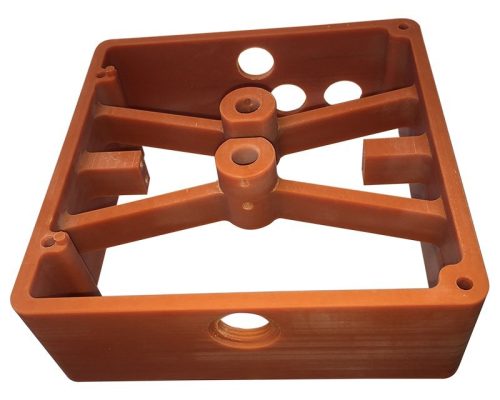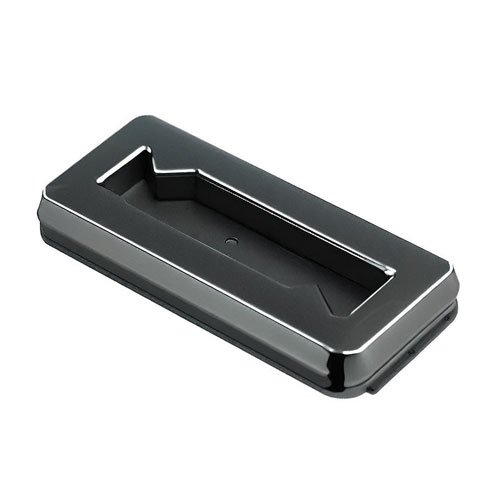In the fast-paced world of modern manufacturing, achieving high precision is a necessity. Custom CNC turned parts play a vital role in delivering components that meet exact specifications, ensuring performance and reliability in various applications. In this article, we will delve into the technological aspects of CNC turning, analyze its advantages for high precision components, and explore how custom parts can significantly enhance your projects.
Understanding CNC Turning
What is CNC Turning?
CNC turning is a computer-controlled manufacturing process that creates cylindrical parts by removing material from a rotating workpiece. Using various tools, CNC lathes can produce components with a wide range of complex shapes and sizes, tailored to precise measurements. This technique ensures high levels of accuracy and the ability to produce components in bulk without sacrificing quality.
The Mechanics Behind CNC Turning
The process begins with a digital design that is translated into machine code. The CNC machine interprets this code, guiding tools with incredible precision. The turning process involves several key steps, including:
- Loading the Material: A raw material, typically metal or plastic, is securely attached to the lathe spindle.
- CNC Programming: The required specifications and dimensions are programmed into the CNC machine, including diameters, lengths, and tolerances.
- Cutting and Shaping: As the spindle rotates, cutting tools engage with the workpiece to remove material, shaping it into the desired final product.
- Finishing: Post-machining processes such as polishing or coating can be applied for enhanced surface quality.
Advantages of Custom CNC Turned Parts
- Precision and Accuracy
Tolerance Levels
One of the most significant benefits of custom CNC turned parts is their ability to achieve high accuracy levels. Tolerances of ±0.001 inches (0.025 mm) can commonly be maintained, which is crucial for applications in industries like aerospace, automotive, and medical.
Consistency
CNC machines consistently produce parts without the fluctuations that can occur in manual machining. Whether you need one piece or a thousand, the uniformity in dimensions is maintained, which is vital for assemblies and components that require precise fitting.
- Flexibility in Design
Tailored Solutions
Custom CNC turning allows designers and engineers to bring their ideas to life. Whether it’s a unique shape, an intricate detailing, or specific features like grooves and threads, CNC turning can handle it all with ease. This flexibility in design significantly opens up possibilities for innovation.
Rapid Prototyping
The ability to quickly produce prototypes means that businesses can test and iterate designs at a faster pace. This agility not only accelerates project timelines but can also result in cost savings. The possibilities of adjusting the digital blueprint without the need for retooling further enhance this benefit.
- Material Versatility
Wide Range of Materials
CNC turning is compatible with a broad spectrum of materials, including aluminum, brass, steel, plastics, and even composite materials. Each of these materials brings its own properties, making it versatile for various applications.
Choosing the Right Material
When opting for custom CNC turned parts, considering the material is critical. Factors such as weight, strength, corrosion resistance, and thermal conductivity will influence your choice. For example, aluminum is often chosen for its lightweight and high machinability, while brass is favored for its excellent corrosion resistance in marine applications.
- Efficiency and Cost-Effectiveness
Lower Production Costs
While the initial setup costs for CNC machines may be high, the long-term benefits often outweigh these costs. CNC turning allows for greater efficiency and reduced labor costs, as machines can operate autonomously, producing parts with little oversight. This results in reduced lead times and ultimately lower production costs.
Batch Production
CNC turning excels in batch production, enabling manufacturers to produce large quantities of identical parts efficiently. The ability to program a CNC machine to run numerous cycles without interruption means rapid scaling of production efforts.
- Improved Surface Finish
Enhanced Aesthetics and Functionality
Custom CNC turned parts can achieve superior surface finishes that meet both aesthetic and functional requirements. High surface quality is essential in many applications, such as medical devices or decorative components, where surfaces can significantly impact performance and appearance.
Finishing Processes
Beyond turning, other finishing techniques such as anodizing, plating, or polishing can be easily integrated into the manufacturing process, further enhancing the functionality and durability of the parts produced.
Applications of Custom CNC Turned Parts
Aerospace Industry
In the aerospace sector, components must withstand extreme conditions while adhering to rigorous safety standards. Custom CNC turned parts play a pivotal role in manufacturing critical components such as bushings, spacers, and fittings, where high precision and light weight are essential.
Automotive Sector
The automotive industry heavily relies on CNC machined parts for engine components, chassis parts, and more. These parts are engineered to endure demanding environments, and precision is paramount to ensure performance and safety on the road.
Medical Devices
From surgical instruments to implantable devices, the medical field demands the highest levels of precision and quality assurance. Custom CNC turned parts can meet the stringent requirements of medical device manufacturing, ensuring functionality and safety.
Conclusion
Custom CNC turned parts offer unparalleled advantages for achieving high precision in component manufacturing. With their flexibility in design, material versatility, efficiency, and cost-effectiveness, they are indispensable in various industries. Understanding the benefits and applications of CNC turning is crucial for businesses looking to enhance their manufacturing capabilities.
As technological advancements continue to evolve in the CNC machining landscape, staying informed and leveraging these innovations can result in superior products and a significant competitive edge. Whether you’re designing for the aerospace industry or developing a new medical device, custom CNC turned parts are indispensable in realizing your project’s goals.
By investing in quality CNC machining services, you are not just choosing a method of production but committing to the excellence and precision that high-performance industries demand. Reach out today to explore how custom CNC turned parts can elevate your projects!


